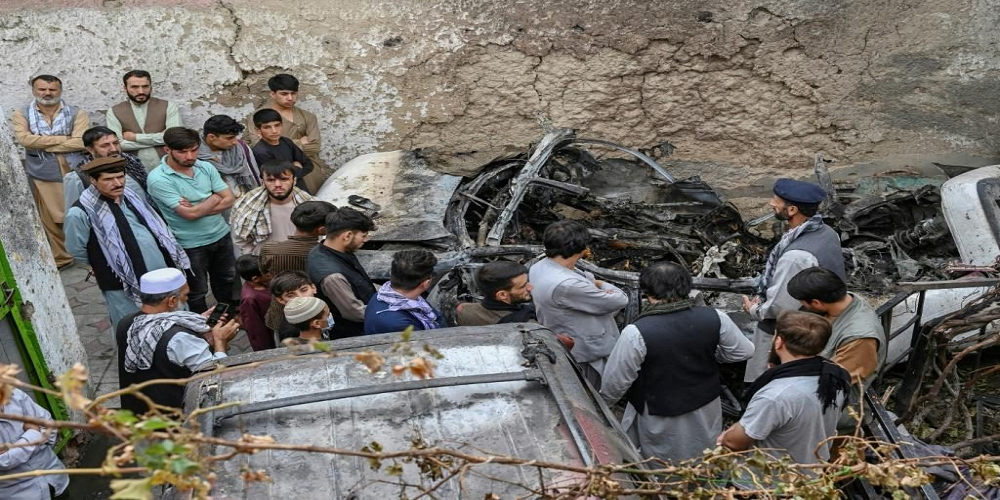Afghan humanitarian worker erroneously targeted by a US drone strike
In a probe of the country’s final military operation in the recently completed 20-year war, the New York Times said that the US erroneously targeted and killed an innocent charity worker for an American firm in a drone attack in Afghanistan.
According to the publication, the deceased was Zemari Ahmadi, 43, who was killed together with nine members of his family, including seven children, after a missile fired by a US air force Reaper drone struck his car as he drove home from work in a Kabul residential neighborhood
The objectives of the 29 August operation, according to US military sources, were Islamic State suicide bombers planning an attack on Kabul airport similar to the one that killed 13 American troops assisting with evacuations and more than 170 people three days earlier.
The attack, according to Gen Mark Milley, head of the US Joint Chiefs of Staff, was a “righteous strike” against Isis-K members who had been seen putting what a surveillance team suspected were bombs into the car and visiting a known terrorist organization safe house earlier in the day.
However, the Times’ investigation, based on comprehensive video analysis, interviews with Ahmadi’s colleagues and family, and site inspections, casts significant and perhaps fatal doubt on the official US account of events.
According to the newspaper, what the US military monitors mistook for suspicious behavior was Ahmadi going about his usual job as a worker for the California-based charity organization Nutrition and Education International.
According to the director of NEI in Afghanistan contacted by a Times reporter, his responsibilities that day included dropping off colleagues at different locations in Kabul, and the “explosives” in the truck were water cartons that Ahmadi filled from a hose at his workplace and was carrying home to his family.
“We have nothing to do with ISIS or terrorism.” We adore the United States of America. We want to go there,” said the director, who requested anonymity due to the risk of being linked to a US firm conducting business in Afghanistan.
The Washington Post released its own study of the deadly US attack, which came to identical results, including the lack of evidence of a second, larger explosion at the home complex, which Milley said was evidence of explosives in the back of the Ahmadi’s car.
The damage seen in photos of the aftermath of the hit was compatible solely with the detonation of a single Hellfire missile from the drone and the subsequent rupture of the car’s gasoline tank, according to the Post
Ahmadi has resided in the property with two of his brothers and their families since 2006, when he started working for NEI. Three of his own children, ages 10 to 20, and five additional relatives, ages two to seven, were among the ten dead, according to the Times.
Ahmadi’s brother, Emal, told the New York Times, “They were all innocent.” “You claim he was ISIS, but he was an American agent.”
Ahmadi and a cousin, according to the relative, both have open relocation applications for themselves and their families in the United States.
We need a tiny favor from you. Every day, millions of people look to the Guardian for open, independent, and high-quality news, and we now have readers in 180 countries.
We think that everyone has a right to knowledge based on science and truth, as well as analysis based on authority and honesty. That’s why we took a different approach: we made the decision to make our reporting accessible to all readers, regardless of where they reside or how much they can afford to pay. More people will be better educated, unified, and motivated to take real action as a result of this.
A truth-seeking global news organization like the Guardian is critical in these hazardous times. Because we don’t have any shareholders or a wealthy owner, our journalism is free of commercial and political influence, which sets us apart. Our independence empowers us to boldly investigate, criticize, and expose those in power at a time when it has never been more vital.

